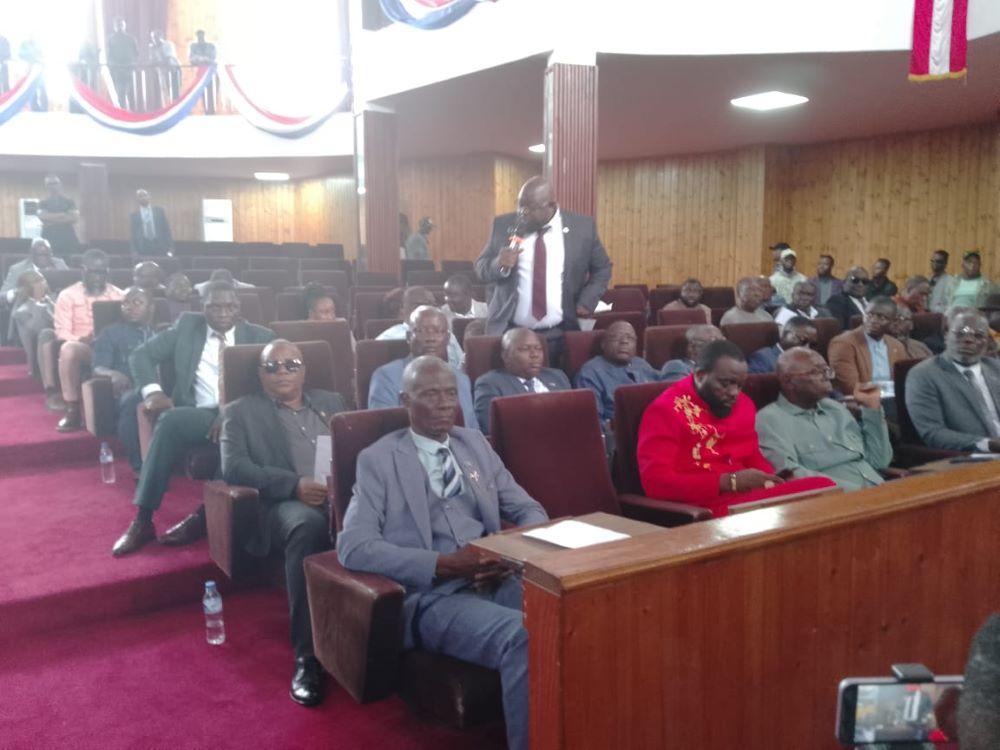In recent weeks, the political atmosphere within Liberia’s House of Representatives has become intensely divisive, with a faction known as the “majority bloc lawmakers” pushing for the ouster of Speaker Fonati Koffa. This group, identifying itself as the opposition to Koffa’s mandate, has voiced allegations of conflict of interest against him, citing the need for a vote of no confidence. However, this attempt to remove the Speaker has not gained the required support, as the rebel lawmakers have been unable to secure a two-thirds majority necessary for a quorum, which has stalled their efforts to effectuate a vote. In the meantime, Speaker Koffa, who finds himself in a precarious position, struggles to conduct official business due to the lack of quorum necessary to convene parliamentary sessions. His efforts to extend an invitation to the opposing faction for dialogue have not been fruitful, illustrating the entrenched positions on both sides.
Currently, the House is significantly hindered by its inability to function due to the deadlocked factions. Soon after the rebellion was initiated—when Speaker Koffa was away on official travel—the opposing lawmakers showed up in the Joint Chamber, directly defying a directive from the Supreme Court of Liberia. This constitutional impasse raises concerns over its potential to undermine legislative and governance processes at a time when urgent national issues demand attention. Reports indicate that the joint efforts of the rebel lawmakers reached out to what appears to be dubious funding sources, with allegations of promised payments as incentives for their rebellion against Koffa. The persistent question looms large over who is financially backing this coup, adding a layer of complexity to the unfolding political crisis.
Speaker Koffa’s political affiliation with the Congress for Democratic Change (CDC), akin to the rebel faction calling for his removal, has led to calls for clarity regarding any underlying motivations. The apparent disarray within the House arises amid the backdrop of impending obligations for government functions, including the submission of the draft national budget for 2025, which has highlighted the urgency of overcoming this legislative gridlock. The lack of a unified legislative body poses a significant threat to the effective governance of Liberia and could hinder opportunities for economic growth and national development.
The ongoing political strife reflects not just party disagreements, but deeper questions about leadership legitimacy, parliamentary procedure, and the broader implications for the Liberian populace. Citizens are increasingly frustrated as the entrenched political elite seem more focused on personal gains rather than the collective interests of the country. The discord among lawmakers has led to a stagnation where no significant rulings or legislation can occur, forcing the judiciary to intervene as a temporary measure. Observers of Liberia’s political landscape advocate for a resolution to this paralysis, arguing that the nation’s welfare should surpass any individual or faction’s egoistic pursuits.
Maintaining public order and a functioning government remains paramount, especially as stakeholders await critical developments that can usher Liberia into a more stable future. As the divided House continues to struggle for coherence, civic voices resoundingly call for accountability and responsible political conduct. The perception of self-serving agendas might alienate the citizenry further and deepen the fissures already present in the political fabric of Liberia. For a nation still reeling from past conflicts, it is imperative that those in positions of influence prioritise transparent governance and legislative efficiency.
In summary, the ongoing conflict within the House of Representatives signifies a broader struggle over power, legitimacy, and accountability in Liberia’s political milieu. The continuous standoff, underscored by defiance against judicial instructions, and the failure to rally lawmakers toward a consensus, bodes ill for the legislative agenda and the well-being of the nation. It is imperative for both factions to prioritize the collective needs over individual ambitions, fostering dialogue over division while working for the advancement and stability of Liberia. The situation presents a crucial challenge to the tenure of Speaker Koffa and the integrity of the legislative process, urging immediate action and cooperation for the benefit of all Liberians.


